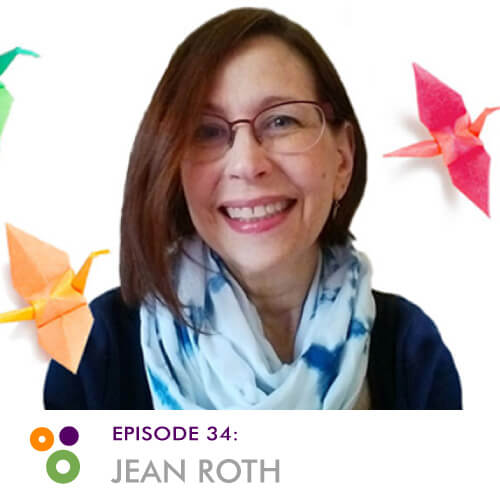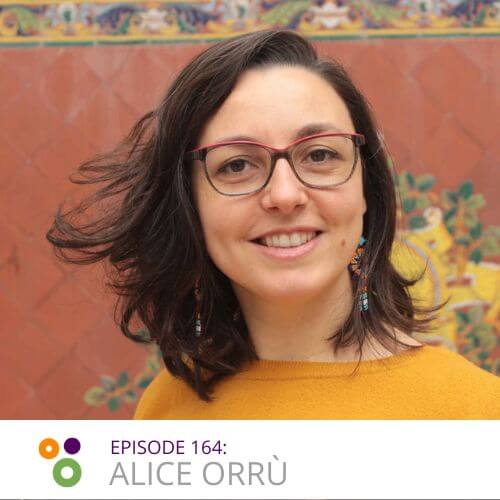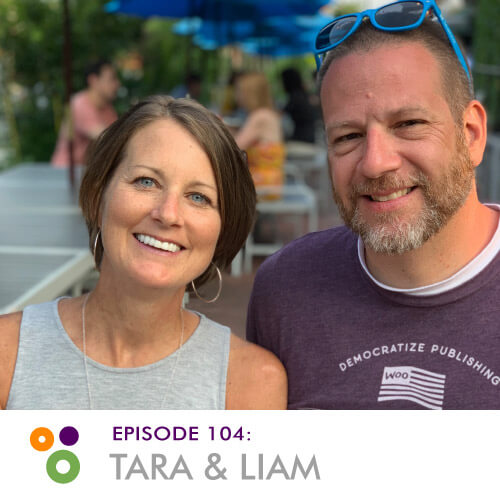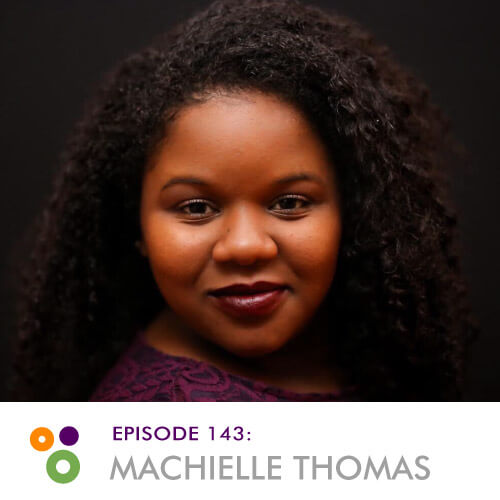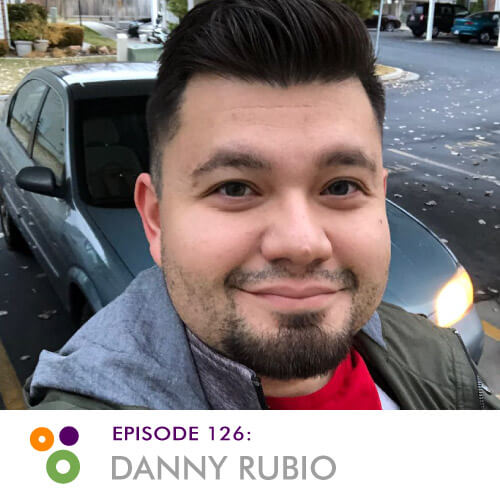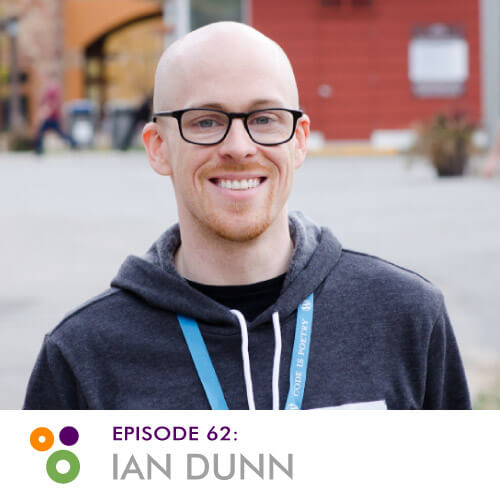Episode 75: Chris Jones

Podcast: Play in new window | Download
Subscribe: RSS
Introducing Chris Jones
Chris Jones is a digital marketing strategist and blogger, and founder of socialbawse.com. He’s a big fan of all things Apple and loves WordPress for blogging and websites.
Show Notes
Twitter | @realchrisjones
Website | Social Bawse
Instagram | Social Bawse
Episode Transcript
Tara: This is Hallway Chats, where we meet people who use WordPress.
Liam: We ask questions, and our guests share their stories, ideas and perspectives.
Tara: And now the conversation begins. This is Episode 75.
Tara: Welcome to Hallway Chats. I’m Tara Claeys.
Liam: And I’m Liam: Dempsey. Today, we’re joined by Chris Jones. A digital marketing strategist and blogger, Chris Jones is a founder of Socialbawse.com. He’s a big fan of all things Apple and loves WordPress for blogging and websites. Hey, Chris. Welcome.
Chris: Hey, how’s it going?
Tara: Hey, Chris. Welcome. Glad to have you here. Can you tell us a little bit more about yourself?
Chris: Yeah, thanks so much for having me. I’m from Houston, Texas. I’m 36 years old. I’ve been working with WordPress now for over 10 years. I can remember when WordPress was some of the earliest versions of it and that. It sure has come a long way.
Tara: Yeah. How did you get into it to begin with?
Chris: Well. I’ve always really been into computers. I always was really obsessed with the internet. I can remember when AOL was around and then Netcom when you could log into the internet. I just became obsessed with that stuff and I really wanted to build a site for myself, plant my flag, so to speak. I started messing around with Blogger, with Google’s platform, and then I discovered WordPress and just basically taught myself WordPress from the earliest time. It just became something I fell in love with and I’ve been doing it ever since.
Tara: So you started as a blogger and now would you consider yourself more of a content person, developer, where do you fall on the spectrum of WordPress people?
Chris: Yeah. I consider myself definitely still a blogger. I blog about social media, and digital marketing, and WordPress. And I like to do listicles and I like to review tools and things of that nature. But then I also build WordPress sites on a professional level both for myself and the clients.
Tara: Okay, so you are a unicorn, I guess in sorts, as they say. [laughs]
Chris: I’m used to wearing a lot of hats.
Tara: Tell us a little bit about Social Bawse.
Chris: That’s a site that I founded. I worked for a number of pretty good-sized agencies in Houston and in Austin. And I recently decided to kind of go and do my own thing. I had done that for a while and now I decided to go back to the agency world. And now I decided to start Socialbawse.com as kind of a– well, it’s part of my design agency but it’s really about content marketing, but it’s really about providing value for people. It’s not about selling anything to anybody, I’m not selling anything. All I’m doing is providing good valuable information to people about digital marketing strategies, about WordPress, about how-tos for beginners who are just starting out with WordPress. Tips for bloggers about how to do SEO, all kinds of things like that.
Tara: What’s your favorite part of your new project? What drew you to it and what are you enjoying the most?
Chris: I really get a kick out of providing valuable content to people and not asking for anything in return. I mean, it really works. What I discovered is, if your intention is not to make money from it and it’s really your passion, and you’re just putting stuff out there to try to help people, and because it’s something that interests you, you want to talk about it, it just sort of becomes successful because there’s nothing behind it. It’s interesting. It’s something I kind of– you hear Gary Vaynerchuk talking about this, and he’s so right. It’s like, if you provide value consistently to people, you’re going to get out there.
Tara: It’s funny. You should use the word successful because that’s something we talk about, success, a lot here. Since you brought it up, can you share with us how you define success? What that means personal and/or professional, or professional and/or personal?
Chris: Yeah. It’s definitely something that means different things to different people. But I would say, for myself, success both professionally and personally would be if I’m achieving my goals, and most importantly, if I’m happy.
Liam: Achieving goals and happy. Talk a little bit about that, how does that play out? Work goals, I get it. You’re launching the client’s website, you’re launching this new business, you’re blogging at a certain rate, et cetera. But how does things slightly less tangible, how am I happy at work, how am I happy in my personal life? How do you measure and set goals around that?
Chris: For me, being happy, as far as work is concerned, if that’s something I love and I’m passionate about, it doesn’t feel like work. It’s not something that I dread doing or I’m like, “Oh, man, it’s Monday. Can’t wait until Friday.” It’s not like that, it’s something I enjoy, I look forward to it. It’s something I have to try to turn myself off at some point in the evening so that I don’t keep doing it because this is not something that I just like doing. Having that good work/life balance I think is very important as far as happiness and as far as the way I look at success. Because you could be successful professionally in that you’re making a lot of money and you’re doing really well with what your business objectives are, but maybe you’re not spending enough time with your family and maybe you’re doing all that at the expense of your kids. And sometimes you’ve got to do these things but I like to try to have as good a work/life balance as I can, and be happy while also enjoying professional success as well.
Liam: Work/life balance is something we hear a lot about from our guests and a lot of them, like yourself, want to maintain that. But it can be a challenge and if we kind of accept that some weeks, it’s more work and other weeks, when on vacation, it’s more family. I want to ask you about the tactics that you use to make sure that kind of day-to-day, week-to-week when it is just kind of like a nine-to-fiveish period. I’m not saying that you necessarily work nine-to-five but it’s not an overwhelming amount of work at that point in your production schedule. How do you balance that? What kind of systems, or tools, or mentality do you take?
Chris: Well, sometimes you have to work late and you have to go– it’s funny you say nine-to-five because, especially in this business, you can kind of be all over the place. If it wasn’t for having a family and things like that, I can easily work way late into the night but it’s something that as I’ve gotten older, I have to measure that out and I have to say at some point, there’s got to be a time in the evening that I take some time and stop working for the day and focus on the other things that matter in my life. You can’t always do that but it’s something that I try to make a conscious effort of doing.
Liam: Cool. The other thing that you mentioned that caught my attention was around how much you really enjoy giving out free content, knowledge, information, and how that, if that’s done in an altruistic way, inevitably at some form will come back to you in a good way, in a productive way, whether that’s karma or a project from clients or what have you. Which makes me wonder a little bit about your involvement with the WordPress community. Are you involved with your WordPress community locally, and if so, how?
Chris: Yeah, we have meetups, WordPress meetups that we do, and then I’m on Wp.org, I’m a part of most of the big WordPress communities on Google+, on Facebook, pretty much everywhere. But as far as locally is concerned, yeah, we have WordPress meetup that we go to once a month.
Tara: Yeah, that’s something we talk about also. WordPress meetups and WordCamps are a place where we can act with other people who use WordPress but also lots of times, people like you who are running your own WordPress business. Have you found support within the community as you’ve branched off and started this new venture? How did you sort of learned your way, found your path to running your own business and running your own website?
Chris: I started out running my own stuff when I first started out in this over 10 years ago. And the money was so good as far as the offers I was getting to come work at some of these big agencies that I decided to go ahead and do that for a few years. I really enjoyed that, it was really cool, plus I got to work with so many different types of client, of all different sizes, with all kinds of budgets. And I got to work with some really amazing people who had all kinds of talents that maybe I was weaker on and I got to get better at graphic design. I got to really enhance the stuff that I wasn’t necessarily good at or had the opportunity to work on. Then I decided to go back and start doing all this with all the knowledge that I had gained over these years. I felt way better equipped to go ahead and do my own thing now because of all the years that I spent watching the people that I work with and seeing how you would structure it and all the way down to understanding how to have the right accounting software, all that stuff.
Tara: Has it changed? Since you did this before and then you worked for someone else and now you’re back to working for yourself again, the pros and cons of that and how has that transitioning gone for you?
Chris: It’s much easier to find clients now than it was when I first– because there are so many more avenues. LinkedIn is just amazing. Before, it was mostly Craigslist and stuff like that. Now you’ve got all these ways, paid or organic as far as LinkedIn is concerned. You have Quora, which I participate on quite a bit and I answer questions. And then, of course, through my own blogging and guest-blogging. There’s just so many ways to get your name out there. I’ve really been putting a lot of emphasis on Instagram lately. I’m trying to build a significant following on there. I’m not that far into it at all. I wish I would have taken it more seriously earlier. I just didn’t realize what kind of organic engagement was going on there.
Tara: I read something about Instagram Stories and I still can’t figure out quite how to do them. But apparently, they get a lot more views, a lot more exposure than Instagram posts.
Chris: So the new thing, if you have an Instagram account for business, once you hit 10,000 followers, a bunch of new tools unlocks, and your Stories, they have a ‘swipe up’ now on Stories for everybody that has 10,000+ visitors or followers. You can do a story but then you can say, “Swipe up.” And link directly to that blog post. When before, if you have less than 10,000, you can only put that one link in your bio. My goal is to hit 10,000 because I want those new tools. Because that’s a game changer to be able to put a link into every single Story is phenomenal.
Liam: Chris, what is a typical project or client project look for you? It’s really interesting, the way that you’re bringing in work. What comes in the door and what does that mean for you project-wise?
Chris: Well, I would say a vast majority of my business is rebuilding Wix sites.
Tara: Well, there’s a niche. Not many WordPress people want to tackle that. [laughs]
Liam: Doing them in Wix or moving them to WordPress or Squarespace? What are you doing within Wix?
Chris: Taking them off of Wix and putting them in WordPress. All these victims of those bad commercials about how you can build yourself a website in 15 minutes. No, you can’t. So they start their business and then they have that Wix site, and then they come to me and say, “Well, I did this in two hours and it’s not getting anywhere.” They’re usually not even listed on Google because they don’t have the right title tags, they don’t have anything. Billion people start it. Thankfully, Wix alone can keep me in business. Same for GoDaddy Page Builder, all that stuff. All the ‘do it yourself’ stuff.
Tara: So you find these people that need this help on social media mainly?
Chris: Yeah, a lot of Facebook. Facebook Groups is huge. Facebook Groups in my local area is huge, I find lots of clients on there. Also, I do email marketing as well. I’m always building my email marketing list.
Tara: You sound like you must be really busy, Chris. How do you manage your time? How do you split your time up, tools?
Chris: It’s all about the tools. That’s why I’m always beta testing new tools. Because if I can find a new tool that’s going to help me work smarter and work more efficiently and improve the quality of what I’m doing, I’m always down to do it. The latest tool I started using is Meet Edgar, it’s my favorite tool right now. Love it. I did a review on it. They’re so nice over there, too, everybody over there on the team is great. So I’ve been using that in conjunction with Sprout Social, that’s the social media management platform I use. And then I use Buffer as well.
Tara: I love tools.
Chris: I love testing them.
Liam: I can just be quiet and let the two of you talk tools for a while if you’d like that. [laughter]
Tara: I don’t know if everybody would enjoy that as much as we would but–
Liam: Chris, I’m interested in kind of a conversion and relationship development. I get you’re joining a Facebook group or you’re answering a question on Quora or you’re connecting on LinkedIn. But then at some point, it has to be, “Hey, I want you to do A, B, C, and D.” You can say, “Well, okay. I’ll do A, B, and C. You’re probably not ready for D but let’s do A, B, C. I want this much money for it and I’m being blunt and quick because we’re on just a conversation here.” How does that work? Do you then transition to email? Are you Instagramming back and forth? Are you just eventually have them pick up the phone? What’s your process once you’ve made the connection and they’re interested and it’s worth you investing some time in that conversation. How does that progress?
Chris: So it usually starts out like you said, with texting or responding in Facebook Groups or whatever, then I’ll go to Instant Messenger and then I set up a phone call. That’s my next step. Always set up a phone call and get the person on the phone, figure out what the scope of work looks like, what their expectations are, what their goals are, what is it that they’re trying to achieve. And then I lay that out and once we hang up, I’ll send them a follow-up email basically rehashing what we talked about. And then I’ll send them an official proposal outlining everything with a line-by-line, what it’s going to cost. Once they sign off on it, then they’ll get sent an invoice and we go from there. And the way I work on payment is 50% up front and 50% upon completion.
Liam: Yup, that sounds interesting. So a lot can happen with social media. “Hey, can you help me fix my website?”, “Sure.” And they’re thinking 10 bucks and you’re thinking 1000, and I’m just making up numbers but that total difference, how do you filter so that by the time you decide, “Yeah, I’m going to pick up the phone with this person.” And invest that kind of time, talk for 15, 20 minutes, write an email follow-up. Where does that happen? Because I imagine with social media, everybody is click, click, click. And then it’s your version of a lot of money is quite different than my version of a lot of money. Client to provider. Where do you start to look for money in the conversation standpoint so that you don’t have to respond to everybody?
Chris: First of all, it depends on what kind of business they have. I’m usually pretty good at screening the people who are serious. It’s a numbers game, like anything else. You’ll have the people who say they want to do X, Y, Z, then when it comes down to it, they start dragging their feet and all that kind of things. Then you have people who are serious and ready to start making moves and, “Let’s get it done.” But yeah, from the phone call, once we start talking about what they want. I let them know fairly early on– here’s kind of ballpark, this is what something like that is probably going to cost you, without being specific. This is ballpark what we’re talking about. And if they’re like blown out of– then you know it’s just not for me. When I first started out years ago, I was doing nickel and dime stuff. I just don’t have time to do that. And God bless everyone that does because those people need somebody who can do those things.
Liam: Well, we all kind of start there, right? Some of that is just learning curve but I don’t know–
Chris: But it’s gotten to now where you’ve got the Fiverr, you’ve got the whole gig economy thing. I can’t compete with those guys anyway on that stuff. Because the guys in India and the guys all over the place, I just leave that for them.
Tara: Right, right. I’m going to back up a little bit because it does sound like you’re more than a unicorn. You’re doing a lot of different things in a lot of different directions, it sounds like, with social media and all the things you’re managing with that. And finding new clients and building websites, and rebuilding Wix and all those things. Going towards your goal of this work/life balance, what is the most important thing that you do every day to help ensure that you are working to be successful in your own definition?
Chris: That’s a good question. I have a list sort of in the morning, I get up pretty early and I put out a list of things that I want to accomplish for that day or the things I need to do, and I always feel good at the end of the day that that list is close to being finished as it can be. That’s kind of the way I handle that.
Liam: How do you decide what makes it onto that list? How do you balance enough things on the list so that you don’t get to two o’clock and say, “Okay, now what?” But also, how do you get it so that at the end of the day, you don’t say, “Crikey, I put on 15 things here and I only got to four.”
Chris: Well, it’s all based on what the most important– most important down to the least important. And the stuff at the bottom is the stuff I’d like to get done but it’s not critical. And the stuff at the top is the stuff that’s absolutely got to be done because there’s timeframes, there’s time involved with that stuff. And there’s expectations and if I told the client something’s going to be done on Friday, then I need to have it done on Friday.
Tara: I’m going to ask you about advice. What is the most important/useful, impactful advice that you’ve received and how do you implement that in your life?
Chris: I would say the most powerful advice would probably be something along the lines of tune out the noise and other people telling you what you need to be doing. If you’re confident about something and you feel confident that you’re going in the right direction, keep doing that and stick with it. Because especially in this day and age, and social media, and all that stuff, the way– especially with blogging. The reason most people are not successful as bloggers in a sense that– of course, success, everybody measures it differently. But I mean by success in the sense that they burn out and they quit blogging. I would say that’s not successful. The reason that is is because they approach it the wrong way, they’re not passionate about it, they don’t pick the right niche. The advice that I always tell bloggers is, if you’re trying to pick a niche– because people want to do content marketing, it’s huge. You need to write about something you’re passionate about. You’re going to be able to write about that subject better than anybody else. Don’t pick a subject because you think it’s popular or it’s going to get lots of clicks, because if you don’t like that, you’re going to burn out on that and you’re not going to write as good as the guy who’s getting all those clicks because that guy loves what he’s writing about. You don’t care about that, you’re just writing about it because you want to get clicks. Write about what you love, whatever that is, and you’re going to write about that better than anybody else, and you’re going to make the best content about that.
Tara: Yeah, that’s good advice. I wonder how that translates for somebody who is trying to gain a following. If you’re writing about something that’s not as broadly marketable, if it’s just what you’re interested in. What do you think about that idea?
Chris: No, because that’s the thing. Everyone wants to glom onto this thing that’s really popular. But the internet is so vast, there’s a bunch of people who love whatever it is you love, I don’t care how weird it is. Or it may seem not mainstream to you, or no one can possibly like that. No, no, I assure you there’s people out there that like that too, whatever it is. If you write about that, you’re going to find your little niche and you’re going to be more successful in that niche than maybe the guy that’s writing about the real popular stuff, or so-called popular stuff. You can gain somewhat of a larger audience in these smaller niches because it’s less competition, there’s less voices in that area.
Liam: Chris, you shared about tuning out the noise and stick with what you feel confident and what you know, and hit on that and try not to let people dissuade you. Within the WordPress community, a significant number of people, whether they’re self-employed or in the employment of others, work from home. And don’t have agency partners at the water cooler, at the coffee machine. Just say, “Hey, I’m thinking about doing this. How does it sound to you?” Within that environment and I imagine that this is something given your experience of working for yourself in the past and again, today, you can share some light on this, how do you go about making sure that you are confident and you have a great idea on a Saturday afternoon while you’re cutting the grass or something like that. And then you do some research on it and you roll that out, how do you maintain that confidence when you don’t have a professional team around you or necessarily a professional support network? How do you know that the noise around you is just noise and not actually that they have the truth and you don’t?
Chris: Well, I still stay in touch with all the different guys that I used to work at the agency with, I’m good friends with them. We’re on instant message all day long, in the corner of my screen I’ll be chatting about stuff. We talk on the phone. I have a couple of different text chains that go on all day and all night throughout the day. I have to sort of keep that under control, too, because I can end up going off on that thing. But yeah, I bounce ideas off people but I also do my research and there’s certain people in the industry who inspire me and who– I tend to– when I have a good idea and it makes sense to me, I don’t really doubt it that much anymore. And I know because I listened to some of my peers and I know within the community that this would be a good idea. And I’ve seen it implemented successfully elsewhere. That’s the way I look at that.
Liam: Thank you. Let me ask you about challenges. You’ve shared with us about your career, about starting your own business, and going to work for other agencies. You’ve talked about working on very big projects, on very small projects, you’ve talked about work/life balance and as you’re starting your new business again, maybe you can share with us what’s been your biggest challenge to date?
Chris: That’s a good question. My biggest challenge to date? Professionally or personally?
Liam: Well, I’ll leave that to you because sometimes they intertwine and sometimes they don’t. But I guess I’ll keep chatting to give you some time to think. And maybe while you’re thinking about the challenge itself, it’s how either have you overcome it if it’s something in the past, or how are you currently working on it if it’s something that’s ongoing?
Tara: We try not to make people cry so you don’t have to– [laughs]
Liam: A lot of people do cry.
Chris: Right. This is going to turn into Dr. Phil up in here?
Liam: I don’t know about that.
Chris: Biggest thing I had to overcome? I don’t know. I guess making the decision to leave the agency life again and then doing something on my own was a pretty big decision because my family’s involved, and things like that, so I’ve got to make sure I do what’s best for them. I guess that’s probably, in recent memory, I guess, that would be a pretty big decision. I, thus far, don’t have any regrets about it. It’s been a good decision.
Liam: That’s great. How long did that process take? I’m always interested in that. So you’re thinking, “Maybe I should go work for myself.” As you’re cutting that grass on Saturday afternoon. Cutting the grass is your philosophical time. How long does it take before you decide to do it and the last day in the office of somebody else’s office? How long did that take? Talk us through that process.
Chris: It took a few months. It’s something that I’ve been thinking about because I constantly have to have ideas about stuff I want to do and it’s just like I don’t have the time because I’m always working on other stuff at work and that kind of thing. And I was still able to work at home three days a week, it’s not that big of a deal. But I wanted to really focus on the stuff that I wanted to accomplish for myself. It took a few months and it ended on a super great note. I can come back any time I want, it’s not a big deal. But it’s just something that I really wanted to do. And knowing everything I know now, I’m able to get just enough clients and set the right price point that I don’t have to be swamped with client work but I can really do that and easily finance what I want to do as far as my own stuff, and get that off the ground and keep that going. That’s kind of what I had envisioned and thus far, it’s been working out really well.
Tara: Excellent. That’s great. When you blog, are you blogging at all about that process, about your transition that you’ve made and running your agency or are you targeting people who are trying to learn how to– what are you blogging about, I guess I should say?
Chris: So I blog about tips for beginners in WordPress. I blog about interesting social media news developments, if Instagram adds some new features or things like that. I also blog about SEO tips for WordPress or SEO tips for bloggers. And then I do reviews of tools. I talk about the tools that I like and why I like them. I talk about my experiences using different types of tools and the ones that I use and why I use them and for what purpose. I kind of just blog about all types of things. It’s usually either social media marketing related or it’s either blogging or WordPress related. To answer your question, I have not talked about that. That’s actually I had thought about doing. I think it would actually make an interesting series of posts. Actually, the newest project that I’m working on right now. I’m actually partnered up with my friend, and we have been partnered up years ago. We created a social network that was very similar to Facebook but it was exclusively for the fresh produce industry. And the purpose of it was to facilitate buying and selling of produce around the country and the transport of it to make it easier. Because the produce industry is very antiquated, they’re still living in dinosaur times. They still use fax machines, it’s very strange. Bringing these guys into the modern era and how I even got into that was because my buddy, he owns the largest produce company in Texas. He’s really plugged into all that whole world. We did this some years ago and it turned out to be very successful, it was a startup we did together. That’s when I left the agency world, started that with him, then we ended up selling it to a big produce media company. Then I went back to the agency world. And now that I’m doing my own thing again, we decided to get together and start another secondary agency that is focusing on building websites and doing marketing just for the produce industry. We’re partnered up on that so I’m excited about that. It’s called Produce Game Changers and we recently launched a podcast, too, so that’s something I’m excited about.
Tara: Another thing you’re doing. I don’t know how you find all the time for that.
Chris: I don’t either.
Tara: I was trying to think of something to say and I can just say, “That’s bananas.” Get it? Fresh produce?
Chris: There you go, exactly. Well played.
Tara: I think on that really bad note, not a fresh note.
Liam: That was such a corny thing to say.
Tara: [laughs]
Chris: It worked though, I mean, it did.
Tara: We need to wrap this up before we get really ridiculously silly. Chris, thanks for joining us today, where can people find you online?
Chris: You can find me on Twitter at @realchrisjones, you can find me on Instagram at @socialbawse, you can find my blog at Socialbawse.com and you can find me on Facebook at Social Bawse, Snapchat, you name it, all pretty much the same. If anybody has any questions or needs coaching and help with anything, feel free to reach out.
Liam: Chris, thanks so much for joining us on this show. It’s been a real pleasure.
Chris: Appreciate you guys having me, it’s been great. Thank you.
Tara: Thanks. Bye-bye.
Liam: Bye-bye.
Tara: If you like what we’re doing here – meeting new people in our WordPress community – we invite you to tell others about it. We’re on iTunes and at hallwaychats-staging.ulpgsyz6-liquidwebsites.com.
Liam: Better yet, ask your WordPress friends and colleagues to join us on the show. Encourage them to complete the “Be on the show” form on our site, to tell us about themselves.
Tara: If you like what we’re doing here – meeting new people in our WordPress community – we invite you to tell others about it. We’re on iTunes and at hallwaychats-staging.ulpgsyz6-liquidwebsites.com.
Liam: Better yet, ask your WordPress friends and colleagues to join us on the show. Encourage them to complete the “Be on the show” form on our site, to tell us about themselves.
